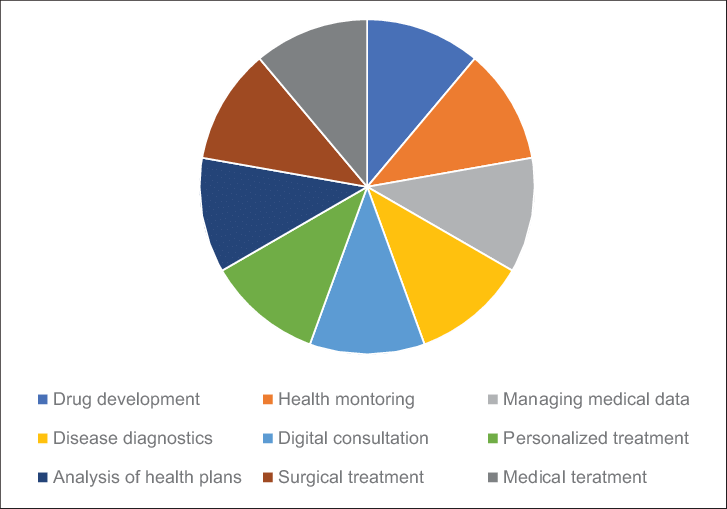Artificial intelligence (AI) is rapidly transforming the healthcare industry, with the potential to improve patient care, reduce costs, and improve efficiency.
Here are some of the potential applications and benefits of AI in healthcare:
- Diagnosis: AI can be used to analyze large amounts of data to identify patterns and trends that may be indicative of disease. This can help doctors to make more accurate diagnoses and to identify patients who are at risk for developing certain conditions. For example, AI-powered algorithms are already being used to detect cancer in medical images with greater accuracy than human radiologists.

- Treatment: AI can be used to develop personalized treatment plans for patients. This can be done by taking into account a patient's individual risk factors, medical history, and genetic makeup. For example, AI-powered algorithms are being used to develop new cancer treatments that are more effective and less toxic than traditional therapies.
- Drug discovery: AI can be used to identify new drug targets and to design new drugs. This can be done by analyzing large datasets of genetic, biochemical, and clinical data. For example, AI-powered algorithms have been used to identify new drug targets for Alzheimer's disease and to design new drugs for cancer.
- Healthcare administration: AI can be used to automate tasks such as scheduling appointments, managing patient records, and processing claims. This can free up time for healthcare professionals to focus on patient care. For example, AI-powered chatbots are already being used to answer patient questions and to provide support.
These are just a few of the many potential applications of AI in healthcare. As AI technology continues to develop, we can expect to see even more innovative and groundbreaking applications in the years to come.
Here are some of the challenges that need to be addressed in order to realize the full potential of AI in healthcare:
- Data privacy and security: AI systems require large amounts of data to train and operate. This data must be collected and stored securely in order to protect patient privacy.
- Accuracy and reliability: AI systems must be accurate and reliable in order to be used in healthcare settings. This requires careful development and testing.
- Cost: AI systems can be expensive to develop and deploy. This may limit their adoption by healthcare providers, especially in developing countries.
Despite these challenges, the potential benefits of AI in healthcare are significant. AI has the potential to improve patient care, reduce costs, and improve efficiency. As AI technology continues to develop, we can expect to see even more innovative and groundbreaking applications in the years to come.